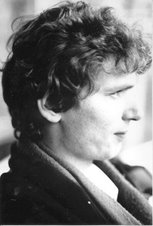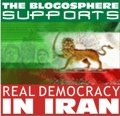Looks like Turkish pride is again a big obstacle....For a good update visit
Vassilio's blog.
A deafening Turkish silence as Greece burns
Monday, August 27, 2007
DUYGU GÜVENÇ
ANKARA – Turkish Daily News
As nearby Greece continued yesterday to face walls of flame killing scores in the country's worst series of forest fires in history, aid from across the Aegean was largely symbolic despite a legacy of mutual assistance borne of the 1999 Turkish earthquake to which Athens was the first responder.
“Turkey is missing the chance of solidarity with Greece due to internal politics. They are all busy with the presidential elections,” said yesterday retired ambassador, Özdem Sanberk to the Turkish Daily News.
The only direct assistance and help was offered by Turkish Red Crescent to the Hellenic Red Cross, through a phone call late Saturday. Tekin Küçükali, president of the Turkish Red Crescent called his counterpart and said they were ready to extend any means of help.
Küçükali, in an interview with the TDN yesterday, said they have already sent two trucks full of tents, blankets, food and medical supplies to İpsala border gate adding “But we need a permission to enter Greece. The Hellenic Red Cross should make a call to Geneva where the international Red Crescent and Red Cross organizations headquarters is, to declare the need of international help. When this call is made our trucks will enter Greece”.
Asked why Greek institutions seem not very much willing to get help from its neighbor Küçükali replied that two countries shared even bread during World War II. After World II, the then-governor of Istanbul, Lütfi Kırdar, organized a campaign of assistance of food and other aid to help Greece during widespread famine. “I would condemn them if they are suspicious of our help” said Küçükali.
Scene was different in 1999
But the case in 1999 was far from this. After the deadly earthquakes in both countries, not only the governments but the nongovernmental organizations of the two countries moved to help before any officials appeals were even made. This solidarity resulted in a rapprochement between two countries and introduced a new term to the lexicon of international relations: “seismic diplomacy”.
Things are different now today: What Prime Minister Recep Tayyip Erdoğan and probable-president-to-be Foreign Minister Abdullah Gül have done so far has been limited to written messages of sorrow and condolences to their counterparts, Kostas Karamanlis and Dora Bakoyannis. But their messages were lack any offers of help.
Greece should demand helpThe Foreign Ministry officials who were trying to explain this unmoving stance of the government to the TDN yesterday said that the Greek government did only ask the European Union countries help. “
We cannot offer any help since there is not any call from Athens for an international help, they have to make a call,” said foreign ministry officials.
But Israel, which is not a member of 27-member union, did not neglect Greece and has dispatched three helicopters to fight with fires.
Some explained the lack of robust action with the fact that Turkey has its hands full on many fronts of its own. “We are dealing with the disastrous flood in Samsun, the earthquake in Bingöl and the four forest fires in Turkey now. We don't have enough equipment to send Greece,” argued a source in the Prime Ministry Crisis Management Center sources contacted yesterday by the TDN.
“The priority should of course be internal fires and flood but Turkey cannot stand still in the face of the fires in its neighbor” said Sanberk, whose last diplomatic post was as Turkey's ambassador the United Kingdom..
Where are the NGO's?
Not only the government and official institutions but the nongovernmental organizations also performed badly in helping to Turkey's neighbor in its fight against the fires. Even the well-respected Turkish search and rescue team (AKUT) didn't make any preparations, said the General Secretary Saydun Gökşin to the TDN.
Gökşin told that they talked to the Greece Special Forces and Hellenic Red Cross but they did not ask for a rescue team.
“Greece only requests aircrafts and helicopters and we can only go there if there is a request. And furthermore we need to go there by a military plane just like in the 1999 earthquake” noted Gökşin. He added, however, that AKUT has rescue teams at the ready in Bursa and Marmaris experienced in fighting forest fires and that Turkey has nearly 50 firefighting aircrafts and helicopters.
"We have teams," Gökşin said."And we can mobilize them."





